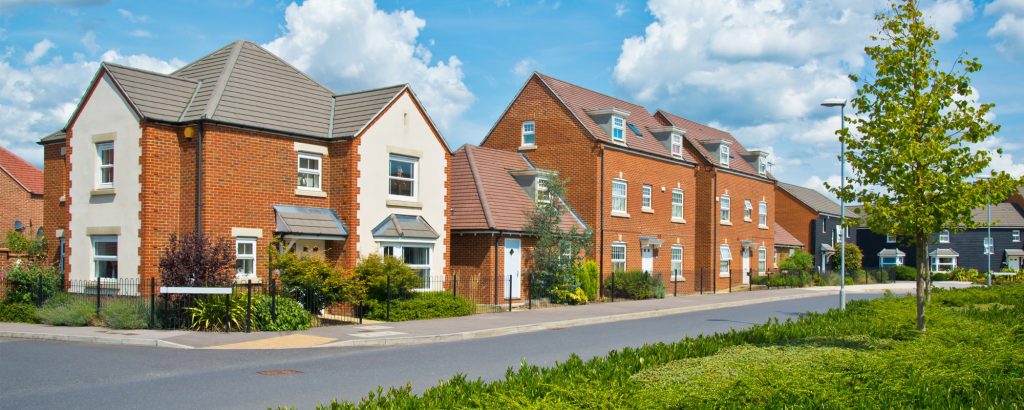
Interest-only mortgages are a popular choice when it comes to large mortgage loans. They offer flexibility if you have a complex income structure and ensure you benefit from lower monthly repayments, which helps to improve your cash flow.
What is an interest-only mortgage?
With this type of mortgage, you only pay the interest due on the loan each month. The capital itself isn’t repaid until the end of the term. This makes your monthly repayments much lower than if you opted for a repayment mortgage. As you only need to cover the monthly interest, this is beneficial if your income fluctuates. You may be self-employed or receive commission or large bonuses as part of your income, for instance.
You will need to prove to the lender that you can repay the capital at the end of the term. This could be with savings or other assets, for example. Or you may plan to downsize in the course of time. Many lenders provide the option to make lump sum payments when your finances permit. This allows you to gradually reduce your loan amount without being penalised with early repayment charges.
Lenders typically ask for a deposit of at least 25% when granting an interest-only large mortgage loan. Some specialist lenders and private banks will consider smaller deposits of 10% or 15% provided that you meet their requirements.
Non-UK residents
Private banks and specialist lenders can provide interest-only large mortgage loans to non-UK residents. If you are an expat or a foreign national, you will be eligible for this type of mortgage provided that you meet the lender’s criteria.
How does an interest-only option compare with a repayment mortgage?
With a repayment mortgage, you repay part of the capital each month as well as the interest. This ensures that your mortgage loan is repaid by the end of the term. As you’re repaying both the loan and interest each month, your payments will be a lot higher than those for an interest-only mortgage.
Some lenders allow you to combine both options. When using a large mortgage loan to buy a property in Pimlico, for example, a lender may agree to an interest-only option for the first half of the mortgage term. For the remainder of the term, they may agree to a repayment basis. Another possibility could be to repay some of the loan during the mortgage term with the balance to be repaid at the end of the term. Specialist lenders and private banks offer more flexibility with repayment options. They can provide a mortgage solution that’s tailored to your needs.
The advantages of an interest-only deal for a large mortgage loan
Only having to repay the interest each month keeps your monthly payments lower. It also frees up money that would otherwise be used with a repayment option, helping to improve your cash flow. This allows you to invest more money into your business or to pursue other investment opportunities.
Many lenders offer flexible terms for this type of large mortgage loan. This is particularly beneficial if you are self-employed or have a complex income structure. You can benefit from penalty-free overpayment options to gradually reduce the balance of the loan. For example, utilising bonuses or investments as payments.
Low interest rates also make this a desirable option. Although you may have the cash to buy the property outright, you may find that you get a better return on your investment when taking out an interest-only mortgage at a competitive rate.
Is a fixed or variable interest rate best for you?
With a fixed interest rate, you know exactly how much you need to pay each month. It offers stability as you know that your payments won’t increase if the Bank of England raises the interest rate. If the rate drops, however, you won’t benefit from lower payments. The interest rates tend to be higher for fixed rate mortgages than they are for those with a variable rate.
At the end of the fixed term, the rate will revert to the lender’s standard variable rate. As this is usually higher, it’s best to look for a new mortgage deal a few months before the fixed term ends. A fixed interest rate can be a good option when you’re planning to hold onto your property in the long term.
If you’re going to sell the property in a short space of time, however, a variable rate may be better for you. Although the rate can fluctuate, it’s beneficial when it is low. You may be able to secure a capped rate to give you peace of mind that your payments won’t exceed that amount if the rate increases.
How to repay your interest-only large mortgage loan
There are various ways to repay the loan and you usually need to provide the lender with a repayment plan when applying for your Welling or Pimlico mortgage. You may decide to sell the property at the end of the term and repay the capital with the proceeds. If the property is in negative equity at that time, however, you will need to use other assets as a repayment method.
Another repayment option is to use your savings. If you make regular investments in stocks and shares, the lender can look at these to ascertain whether they’re adequate to repay the loan. Alternatively, you may receive bonuses that can be used to repay part of the capital at set periods during the term, such as every quarter.
You can also consider remortgaging the property at the end of the term. If you can find a cheaper deal on a repayment basis, this allows you to repay the interest-only mortgage. Instead of switching to a new mortgage, your mortgage broker in London, Kent or Edinburgh may be able to negotiate with the lender to extend the mortgage term. This gives you a bit of extra breathing space to strengthen your position so that you can repay the outstanding balance.
Another consideration is to downsize, using the sale proceeds to cover the original loan. Bear in mind that if the property market has taken a turn for the worse at that time and your property has dropped in value, you could go into negative equity. If you’re lucky enough to own other properties, you can release some equity from them to repay the mortgage loan. Likewise, the proceeds from the sale of a business can be used to repay the capital borrowed.
Talk to the mortgage experts.
Call us on 01322 907 000
or enquire now
Get in touch
Error: Contact form not found.

